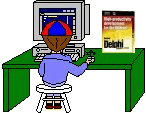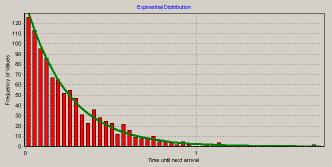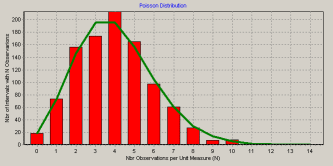What's New - October 2003
[Home]
October 27, 2003:
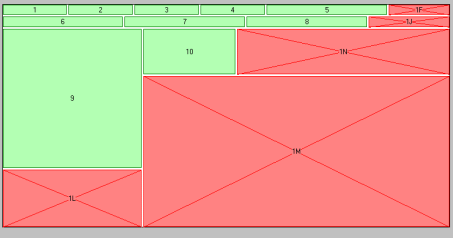 A Cut List is a list, or better yet a diagram,
showing how to cut material pieces required for a project from a
set of available stock pieces. Here's CutList,
an update of a program I wrote 10 years ago to to solve a
particular problem.
A Cut List is a list, or better yet a diagram,
showing how to cut material pieces required for a project from a
set of available stock pieces. Here's CutList,
an update of a program I wrote 10 years ago to to solve a
particular problem.
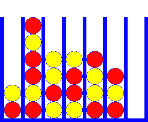 October
21, 2003: Viewer Joe wrote a few weeks ago asking if I could
make a version of our Four In A Row game that would allow three
humans to play each other. He also wanted to be able to set
a larger board size. Four
In A Row, Version 2B does it. Have fun Joe!
October
21, 2003: Viewer Joe wrote a few weeks ago asking if I could
make a version of our Four In A Row game that would allow three
humans to play each other. He also wanted to be able to set
a larger board size. Four
In A Row, Version 2B does it. Have fun Joe!
October 18, 2003: Thanks to viewer Brandon Hunt, the confusion over Amex and Discover cards has been cleared up. They do use prefix digits in creating check digits. All major cards use the same algorithm as described in the ANSI standard that governs credit cards: ANSI X4.13, "American National Standard for Financial Services - Financial Transaction Cards". The algorithm was developed by Hans Peter Luhn, one of the early pioneers developing techniques for making computers useful. He was granted the check digit patent in 1960, at age 64. Who says that us old codgers lose our mental faculties? I reposted the Check Digits program today with the new information and deleting all that foolishness testing whether card number prefixes are required - they are. .
October 17, 2003:
|
|
|
|
Exponential |
Poisson |
It has been a while since I posted a program partly because we're trying to get ready for winter here on the mountain. Also today's posting, Probability Distributions, was one of those simple little ideas that turned out to be not so simple to implement. It started while thinking about the "people generator" for version 2 of my elevator simulation program. Simulating the time between random arrivals often assumes an Exponential distribution which is related to another distribution, the Poisson, describing arrivals per unit of time. I decided to post a Math Topics program describing this relationship and showing how the statistics of sample data relate to theoretical statistics. What the heck, might as well throw in the Normal And Uniform distributions and maybe an illustration of the remarkable Central Limit Theorem. Two weeks later, here it is.
October 6, 2003: A viewer wrote the other day asking if I could validate American Express card numbers. I don't have a Amex card, so can't be sure, but I posted a version of the Check Digits program today that tries. It validates my Discover card OK, as well as Visa, MasterCard, "mod 11" ISBN (book) numbers and traditional "mod 10" check digits. Perhaps an Amex card holder will send me feedback if the program happens to work for their card.
